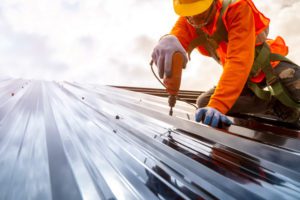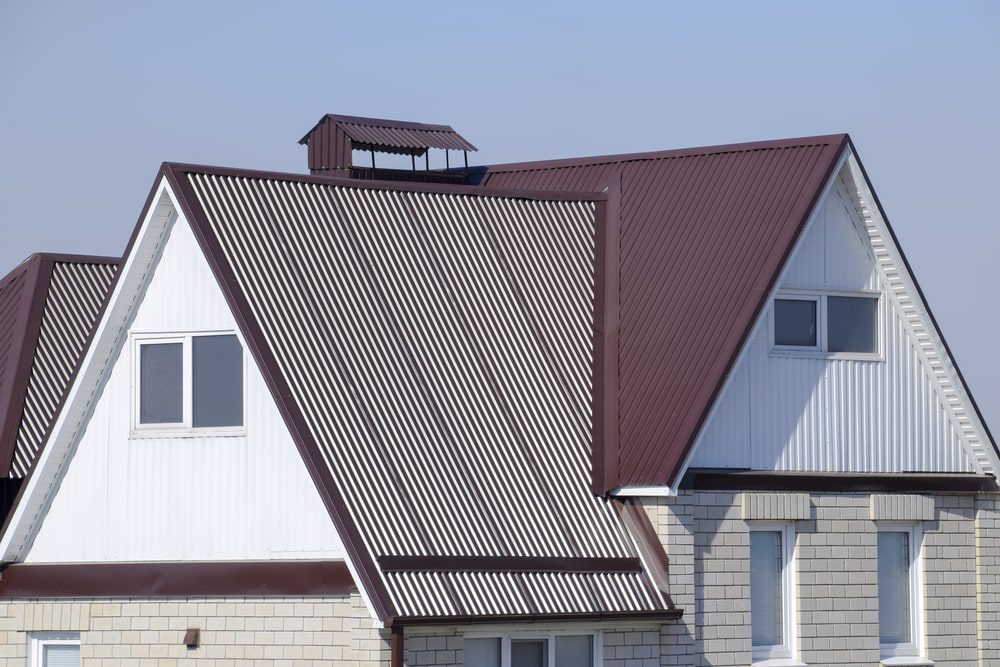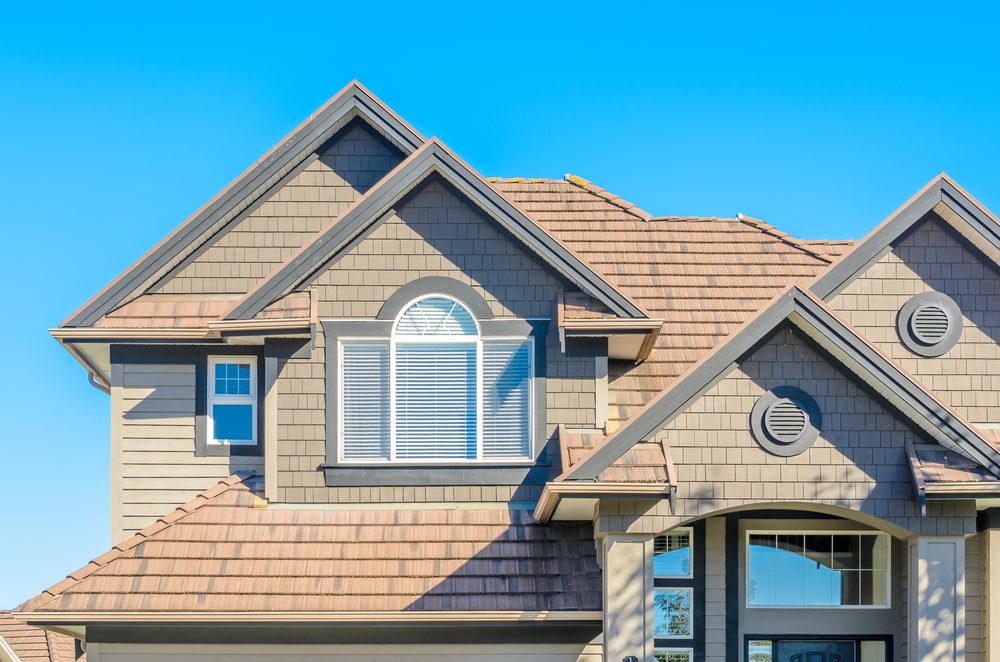If you’re stuck between choosing a metal or shingle roof for your reroofing or roof replacement, you’re not alone. Many homeowners find themselves weighing the pros and cons of these roofing materials when faced with a roof replacement. Metal roof vs. shingles – which roof is right for your home and budget?
Let’s compare the durability, cost, and materials to help you make an informed and confident decision and see if you will choose a metal or shingle roof.
The Durability of Metal Roof vs. Shingle Roof
Without a doubt, metal roofing is more durable than shingle roofing. Most metal roofing consists of solid panels welded or bolted together to form a single protective surface. Compare this to an asphalt shingle roof, which is protected by hundreds (sometimes thousands) of individual asphalt pieces.
If a shingle loosens and falls to the ground, it leaves a small opening that can attract pests, rainfall, and mold. This damaged asphalt shingle might even slide into your gutter system, leaving you none the wiser about your roof damage. That’s until you start noticing water stains on your ceiling.
Metal roofs can handle strong winds, harsh sunlight, and steady rainfall better than shingle roofs. While this type of roofing can rust over time, the process is gradual enough that homeowners can prepare for reroofing services or full roof replacement. It’s far easier to notice dark red streaks of rust on a steel roof than it is to notice a single missing shingle on an asphalt roof.
Longevity of Metal Roof vs. Shingles Roof

Durability and longevity are closely linked. After all, a roof that shows signs of deterioration after a few years probably isn’t going to enjoy a long lifespan. Both metal and shingle roofing can suffer from durability problems due to weather and environmental factors. Still, metal tends to enjoy a longer lifespan than asphalt.
The average asphalt roof lasts between 20 and 30 years, but a high-quality metal roof can last longer than 50 years. If you’re looking to invest in a roof that could last you a lifetime, you’ll likely want to switch from traditional shingles to modern metal. If you’re worried about the integrity of your roofing system, an inspection may be in order. Of course, this increased longevity doesn’t come cheap.
Cost of Metal Roof vs. Shingles Roof
A roof doesn’t solely consist of the materials you can see. Instead, it’s a series of internal structures protected by the outer material. For example, the shingles of a sloped asphalt roof would slough off if the thick beams and frames beneath them disappeared! When analyzing the cost of metal roof vs shingles roof, it’s essential to remember that the total price typically reflects the entire roof, not just the material on the top.
That said, one of the major drawbacks of installing a metal roof is the initial expense. While the average cost of installing an asphalt roof is under $10,000, the average price for a metal roof exceeds this benchmark, sometimes by several thousands of dollars.
But this is just the initial installation cost. When you compare the long-term cost of metal roof vs shingles, the pricier option is almost always asphalt shingles. This is especially true of higher-quality metal roofs made of galvanized steel or copper, as these are resistant to rust and impacts. If you live in an area prone to windy rainstorms, switching to a metal roof could help reduce your annual roof repair costs by hundreds of dollars.
Metal Roof vs. Shingles Roof: Which Insulates Better?
Skyrocketing AC and heating costs are some of the first red flags homeowners notice when their roof needs replacing. Consequently, many homeowners are determined to select roof types that are well-known insulators, as these can keep cooling and heating costs low.
Generally, metal roofing is the better option for those hoping to reduce their home’s energy expenditures. After all, large metal sheets can trap rising air far better than asphalt shingles, helping you maintain your home’s temperature without forcing your HVAC system into overdrive.
Remember, asphalt shingles can blow off in strong winds or deteriorate over time, leaving small gaps. These tiny openings might not lead to noticeable leaks, especially when your roof is only mildly damaged.
But over time, they can add up, causing your electricity bill to rise just as quickly as the warm air leaving your attic. So, if you’re looking for a roof that can help you save money over time, you might want to opt for metal instead of asphalt.
Materials Used for Metal Roofs vs. Shingle Roofs
When installing a metal roof, you can choose from a laundry list of materials. Some of the most common metals used for roofing include:
- Aluminum
- Galvanized steel
- Stainless steel
- Copper
Corrugated steel is one of the most affordable options, while copper is often one of the priciest roof-friendly metals. Still, you’ll be able to select a material that falls within your budget and adheres to your personal preferences when you opt for a metal roof.
But when you choose shingle roofing, your options are often limited to what colors you like. That’s because most shingle roofs are made of asphalt. Of course, you could opt for wood shingles (like cedar shake) or metal shingles made of aluminum. But asphalt is the most common shingle material. This material is so commonplace among shingle roofs that many contractors use the terms “shingle roof” and “asphalt roof” interchangeably.
Final Thoughts

Both metal and shingle roofs can protect and insulate your home, keeping leaks and extreme temperatures at bay.
A metal roof may be best if:
- You’re looking to install a roof that can last a lifetime.
- You’d like to decrease annual roof maintenance costs.
- You live in a warm inland area with little to no snowfall.
An asphalt roof could be the right choice if:
- You’re working with a tight budget.
- You live in a coastal area or an area that receives frequent snowfall.
- You’ve invested in spray foam insulation in your attic.
For more information about different roof types, please contact Perfect Exteriors today. We look forward to answering your questions.


